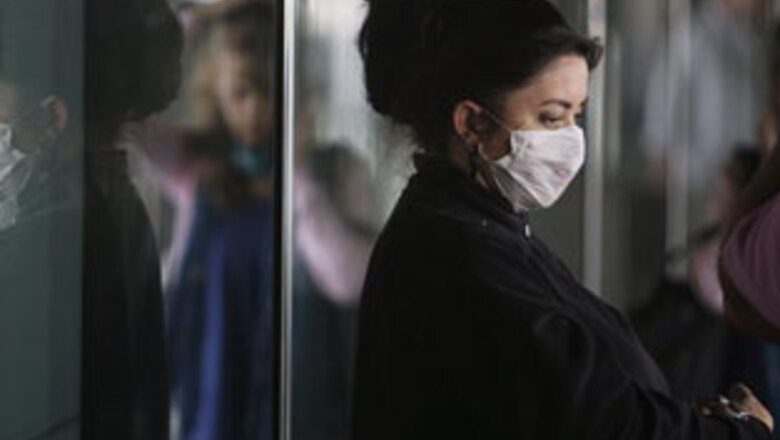
views
Mexico City/Washington/Toronto/London: The swine flu epidemic took its first toll outside Mexico, where it originated, with a 23-month-old baby dying in the US border state of Texas on Wednesday as fresh cases were reported from several countries, including Germany and Canada.
Responding to the crisis in the US, which is left with 63 confirmed cases of the flu, President Barack Obama asked Congress for an added $1.5 billion to tackle the problem.
The money will be used to "enhance the nation's capability to stop the spread", including stockpiling anti-viral drugs and develop and "ramp up production" of a vaccine, said spokesperson Robert Gibbs.
While the disease spread to five states in the US, Mexican authorities stuck to 159 people being killed but said only seven had been confirmed swine flu deaths.
On Tuesday, 1,311 people remained hospitalised in Mexico of a total 2,498 suspected cases, DPA news agency reported from Mexico City.
Reacting to criticism from Brazil, Mexico insisted it acted with due speed when the epidemic broke out and was facing a virus that was unknown in the world.
"They have been having cases since March, and we only found out on Friday," complained Agenor Alvares, general director of Brazil's public Agency for Health Surveillance.
The World Health Organization (WHO) had on Tuesday raised its pandemic alert level to phase 4 -- the maximum alert level is six - in response to the rapid spread of the H1N1 swine flu outbreak but did not recommend restrictions on travel.
Phase 4 means that there is sustained human-to-human transmission of the virus, which causes respiratory illness in pigs and is a genetic mix of swine, human and avian flu strains, in at least one country.
As the flu spread, countries all over the world took step to contain the disease, which mimics the symptoms of influenza with fever, coughing, muscle ache and fatigue.
As governments tightened vigil at airports, Canada on Tuesday reported seven more cases.
Authorities said all the new cases were linked to the Mexican outbreak as either the affected people or someone from their families had just returned from that country.
Since the swine flu virus has an incubation period of two to seven days, they feared that many more cases would come to light in the coming days.
It was the same with other countries.
In Germany, three people who had recently returned from Mexico were infected with the virus, laboratory tests confirmed on Wednesday.
Germany is the third European country to confirm a human infection of swine flu after Britain and Spain.
In Britain, the number of people infected with swine flu had risen to five, Prime Minister Gordon Brown told parliament on Wednesday.
He said a 12-year old schoolgirl and two adults had tested positive for the virus, in addition to a honeymooning couple in Scotland. All had recently returned from Mexico.
Cuba cancelled all flights to and from Mexico for 48 hours.
Health experts said low and middle-income countries were less prepared than developed nations to fight an outbreak of swine flu.
"Of particular concern is the ability of low-income and middle-income countries to detect and mitigate the effects of this new virus on their populations," said The Lancet, an authoritative medical journal.
"Displaced populations, such as refugees, are especially at risk," the Lancet said.
The comment comes amid evidence that global stockpiles of the two antiviral drugs that can treat swine flu - Tamiflu and Relenza - are mostly held by governments of wealthy countries such as the US, Britain, Canada, France, Italy and Japan.
Whereas Britain has enough doses to treat 30 million people - about half its population - Indian health authorities say they have about a million doses, which can treat 142,000 people, and have ordered another million.
The WHO says containment measures such as travel restrictions are not helpful at this stage because the virus is already widespread.
"The world has moved closer towards a pandemic, but it is not yet inevitable. Crucially, containment of the outbreak is no longer feasible and countries should now be preparing to mitigate the effects of the virus on their populations," The Lancet said.
Major US stock indices fell for a second straight day on Tuesday as concerns over the economic impact of a growing swine-flu outbreak and the state of US banks overshadowed a massive jump in consumer confidence.



















Comments
0 comment